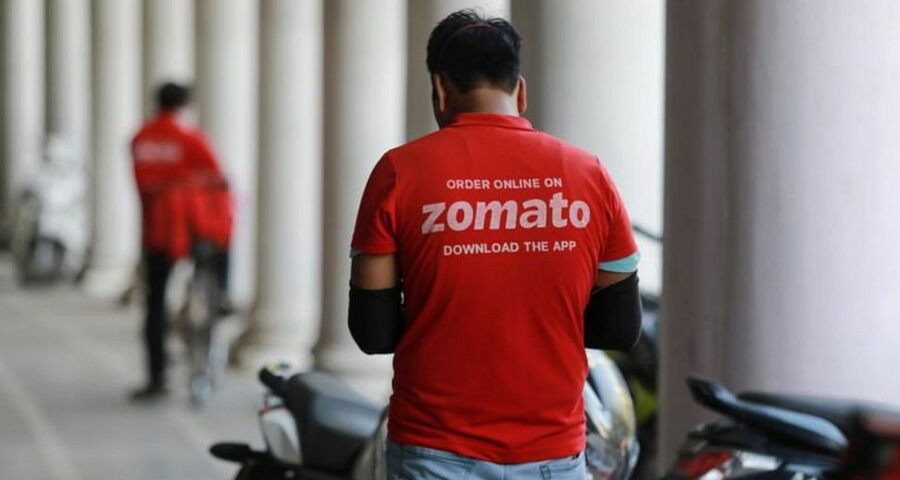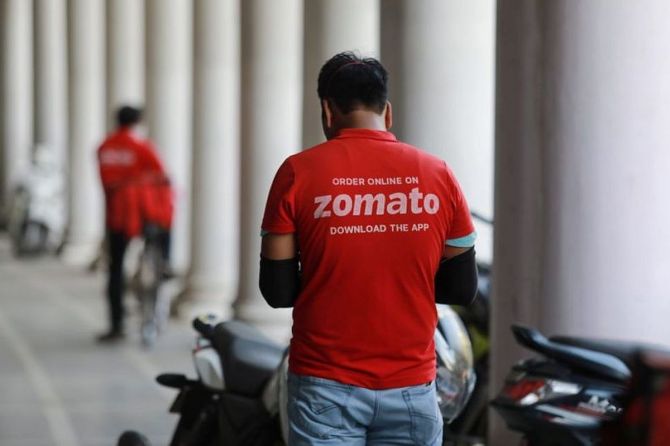Zomato said it has consistently gained market share over the last four years to become the category leader in the food delivery space in India in terms of gross order value from October 1, 2020 to March 31, 2021.
The coronavirus pandemic has accelerated the adoption of services by food delivery giant Zomato.
The Gurugram-based company said its revenue from operations has grown from Rs 466 crore in FY18 to Rs 2,604 crore in FY20, signifying around 5.5X growth over the three-year period.
Revenue from operations for the nine months ended December 31, 2020, stood at Rs 1,301 crore.
“In particular, as lockdowns, in response to the Covid-19 pandemic, eased in India towards the end of May 2020, our food delivery business started recovering.
“In the third quarter of FY21, we recorded the highest GOV (gross order value) in any quarter till December 2020,” said the company.
“The accelerated growth of our business, stemming from the effects of the Covid-19 pandemic, may not continue in the future.”
Referring to research firm RedSeer, Zomato said it has consistently gained market share over the last four years to become the category leader in the food delivery space in India in terms of GOV from October 1, 2020 to March 31, 2021.
Food services is a competitive market in India comprising food delivery players such as Zomato and Swiggy.
There are also cloud kitchens like Rebel Foods and branded food services players (including quick-service restaurants such as Dominos, McDonalds and Pizza Hut).
Zomato experienced rapid growth in food delivery in India with orders increasing by 13.2 times from 30.6 million in financial year 2018 to 403.1 million in financial year 2020 and GOV growing 8.4 times from Rs 1,334 crore in FY18 to Rs 112,21 crore in FY20.
On average, 10.7 million customers ordered food every month on the platform in India in FY20 with an average monthly frequency of over three times.
In the nine months ended December 2020, 99.3 per cent of the food delivery orders came through Zomato’s mobile application.
Zomato has one of India’s largest hyperlocal delivery networks in terms of the number of delivery partners as of December 31, 2020, according to RedSeer.
The delivery network collected food from restaurant partners and delivered it to customers with a median delivery time of less than 30 minutes in FY20.
The delivery time is calculated from the time the order is placed on its mobile application to the time the order is delivered to the customer.
Zomato had 161,637 active delivery partners during December 2020.
In FY20, the delivery partners fulfilled 94.9 per cent of orders which were delivered.
On average, in FY20, Zomato had 131,233 active food delivery restaurants every month.
Zomato said restaurants are the backbone of its business, and it strongly believes that the company can only be viable if it helps the restaurant industry grow.
The company said it will need to work with its existing and increasingly large number of new restaurant partners, delivery partners and other participants in its network efficiently.
The aim is to establish and maintain mutually beneficial relationships with them.
“We will also need to continue to expand, train, manage and motivate our growing workforce,” said Zomato.
“To support our expansion, we also expect to implement a variety of new and upgraded managerial, operating, financial and human resource systems, procedures and controls, which may lead to higher costs.”
However, Zomato acknowledged that its food delivery business was significantly impacted during the first quarter of FY21.
This is because most restaurant establishments had temporarily closed operations in response to government-mandated lockdowns and customers were unwilling to order food from restaurants.
Similarly, Zomato’s revenues from its dining-out services were severely impacted by the Covid-19 pandemic.
While its food delivery business has recovered since lockdowns eased in India, the dining-out business is still recovering as customers are still reluctant to dine out as a precautionary measure.
“In addition, further government actions and lockdowns to contain the spread of Covid-19 could adversely impact us,” said Zomato.
Photograph: Anushree Fadnavis/Reuters
Source: Read Full Article


